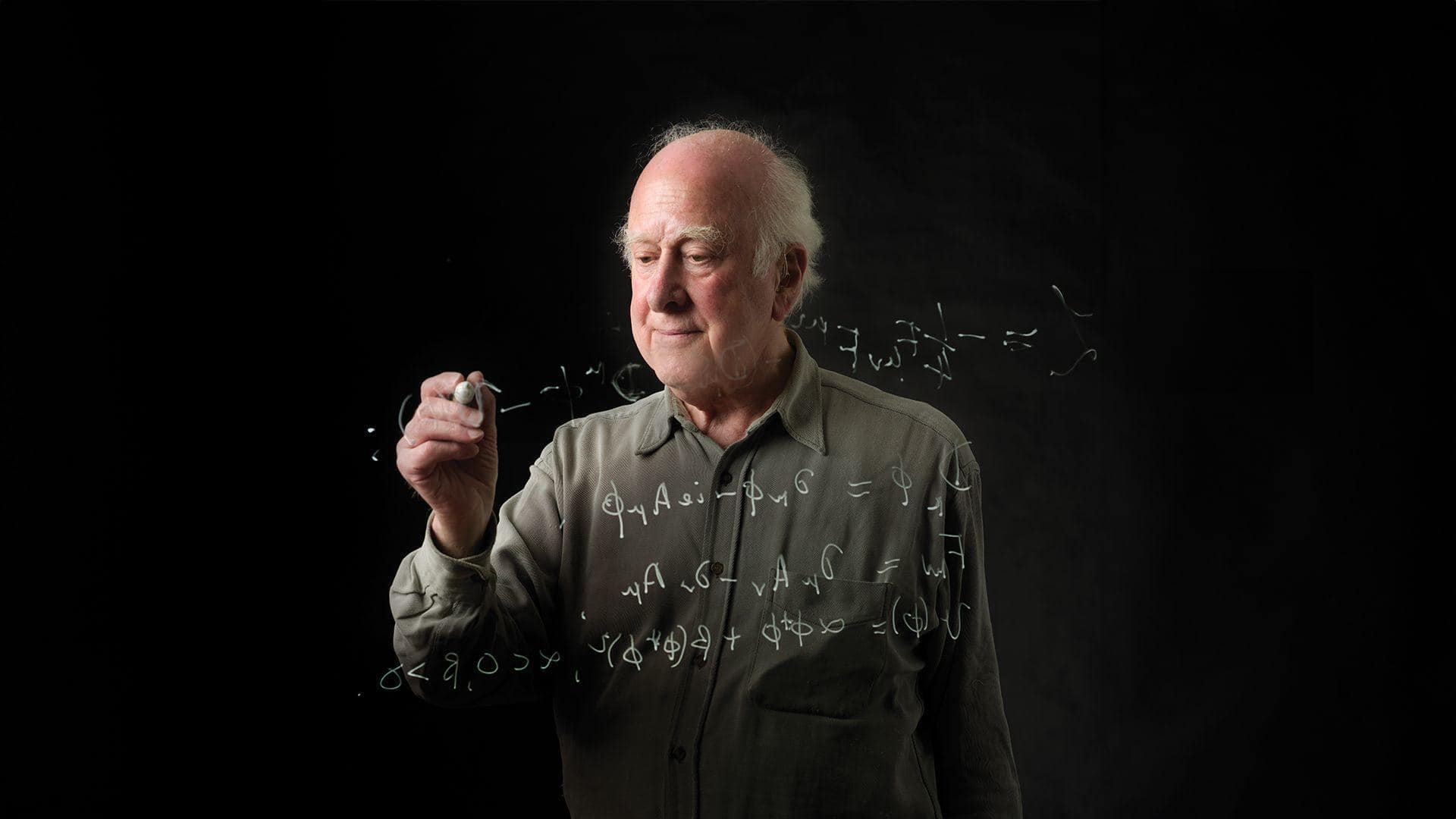
Peter Higgs, Nobel laureate behind 'God particle,' passes away
What's the story
Peter Higgs, the acclaimed British physicist known for his groundbreaking theory of the Higgs boson or "God particle," has passed away at the age of 94. The University of Edinburgh confirmed his death, stating that he "passed away peacefully at home" on April 8 "following a short illness." His association with the Scottish university lasted nearly five decades, where he was recognized as a great teacher and mentor, inspiring generations of young scientists.
Groundbreaking theory
Higgs' pioneering work unraveled universe's mass mystery
Higgs' revolutionary theoretical work provided an explanation for the Universe's mass, solving one of the most complex mysteries in physics. His contributions placed him alongside luminaries such as Albert Einstein and Max Planck in academic literature. In 1964, he formulated a theory that would later win him and Belgian physicist Francois Englert the 2013 Nobel Prize in Physics.
Theory confirmation
Theory was confirmed by CERN's Large Hadron Collider
The 2013 Nobel Prize followed experiments conducted in 2012 with the Large Hadron Collider at the European Organization for Nuclear Research (CERN). These experiments confirmed Higgs' theory, over half a century after it was first proposed. The confirmation of the existence of the Higgs boson, or "God particle," marked a significant milestone in our understanding of the universe.
Tributes
Tributes pour in for the late physicist
Peter Mathieson, VC of the University of Edinburgh, expressed his admiration for Higgs, calling him a "remarkable individual" and a "truly gifted scientist." Fabiola Gianotti, CERN Director General, also paid her respects to Higgs, describing him as a "very special person" and an "immensely inspiring figure for physicists across the world," praising his ability to explain physics in a simple yet profound way.
Career journey
A life dedicated to physics and education
Born in Newcastle, northwest England in 1929, Higgs earned his First Class Honors in Physics from King's College London in 1950. By 1954, he had obtained a Masters degree and a PhD. Shortly after, he joined the University of Edinburgh as a senior research fellow. After years of dedicated research, he became professor emeritus at the university in 1996.
Honors
Higgs' legacy: A life of honors and national recognition
Throughout his career, Higgs received numerous academic honors, including several honorary degrees from prestigious institutions like the University of Cambridge. In 2013, Britain recognized his nationally significant service by honoring him as a Companion of Honor. His pioneering work has inspired thousands of scientists and his legacy is expected to continue inspiring many more for generations to come.